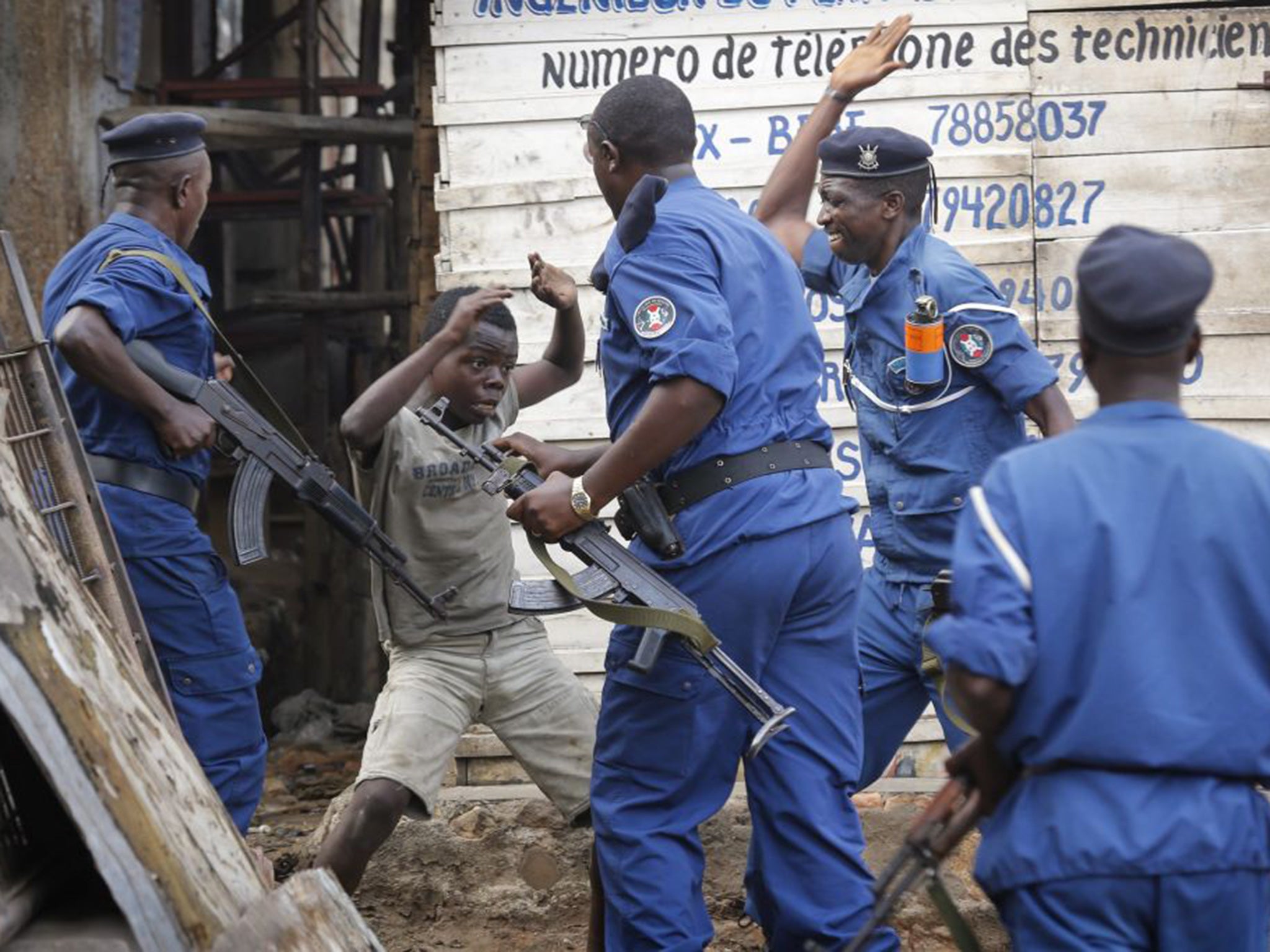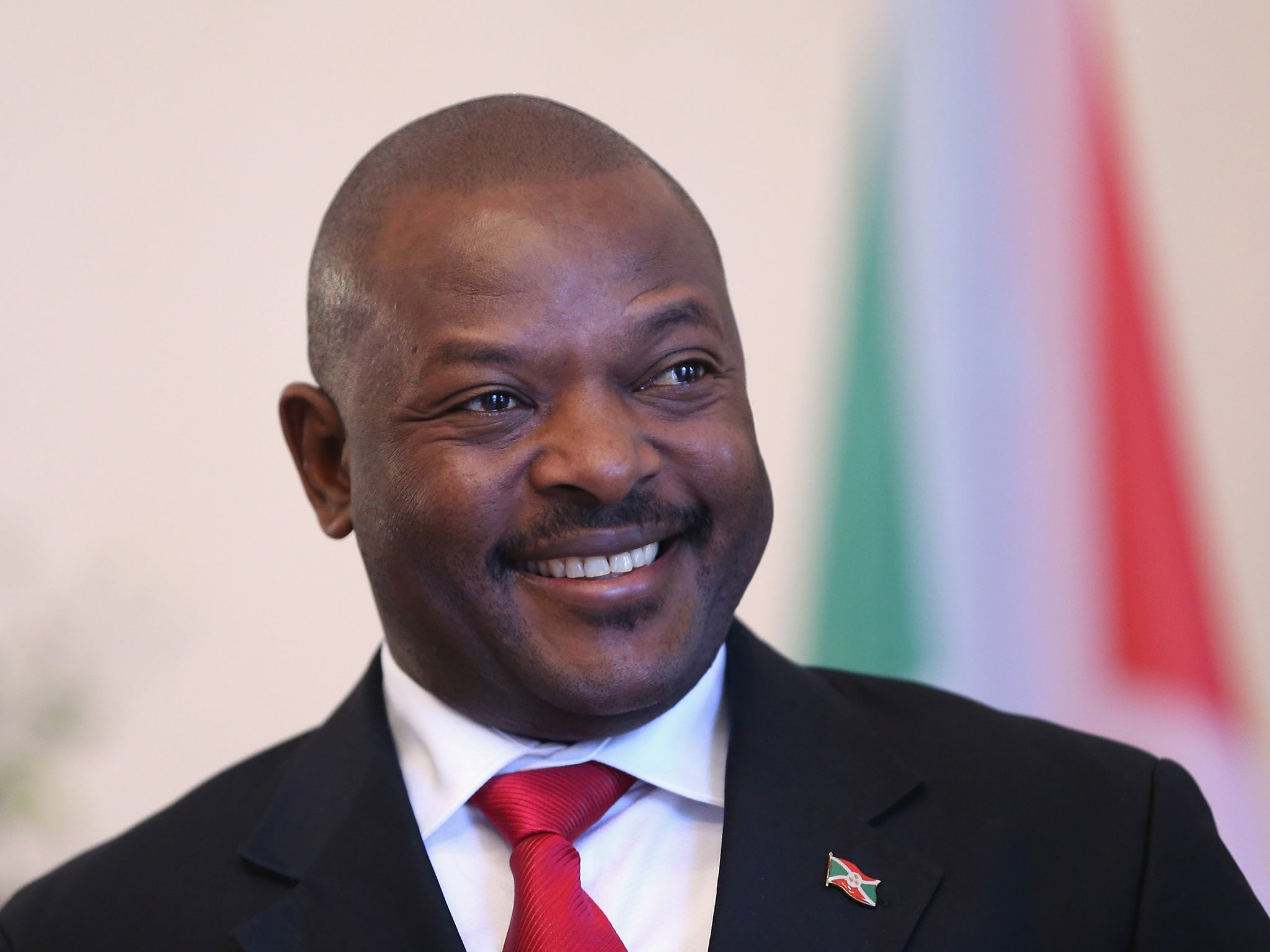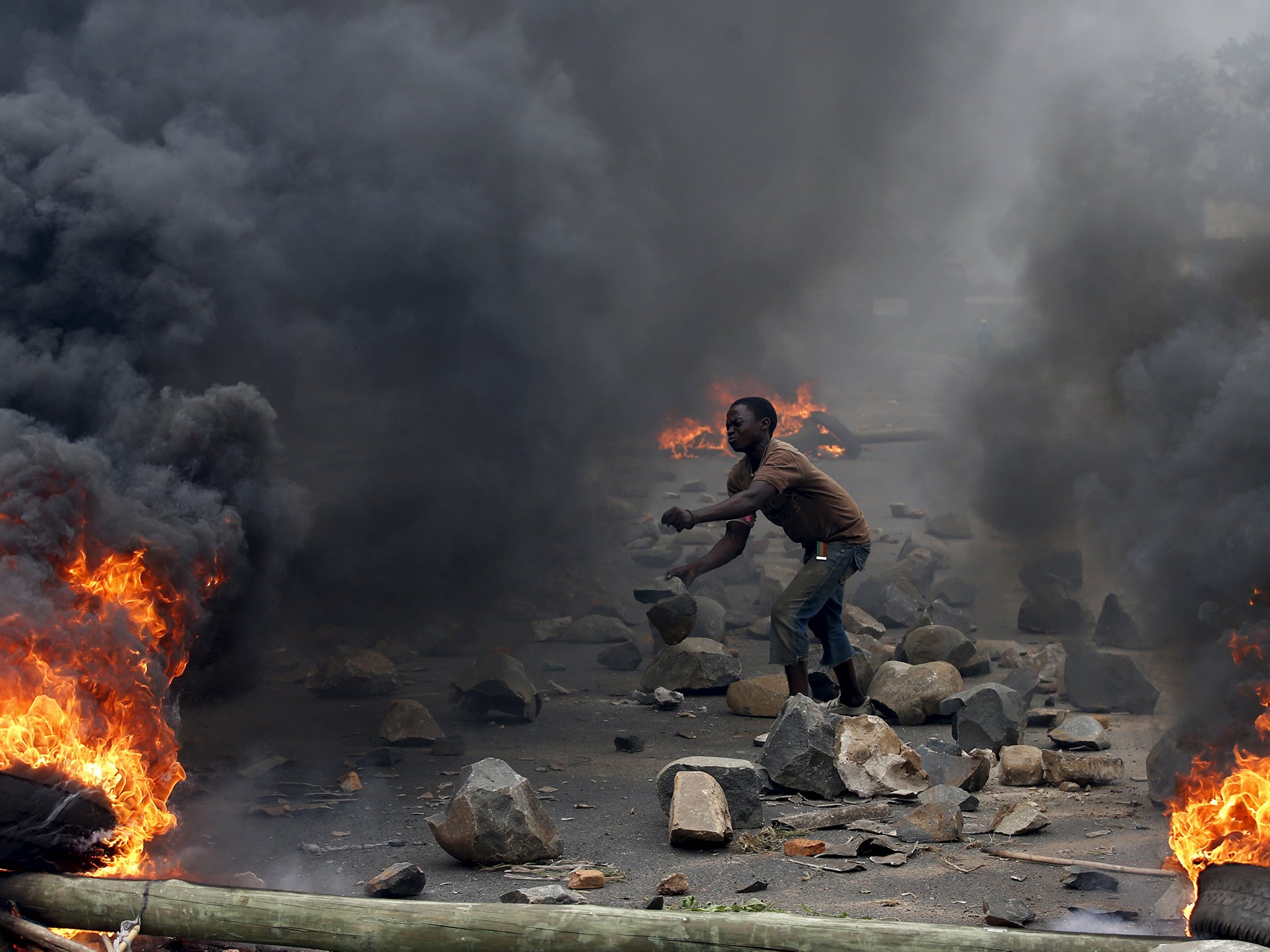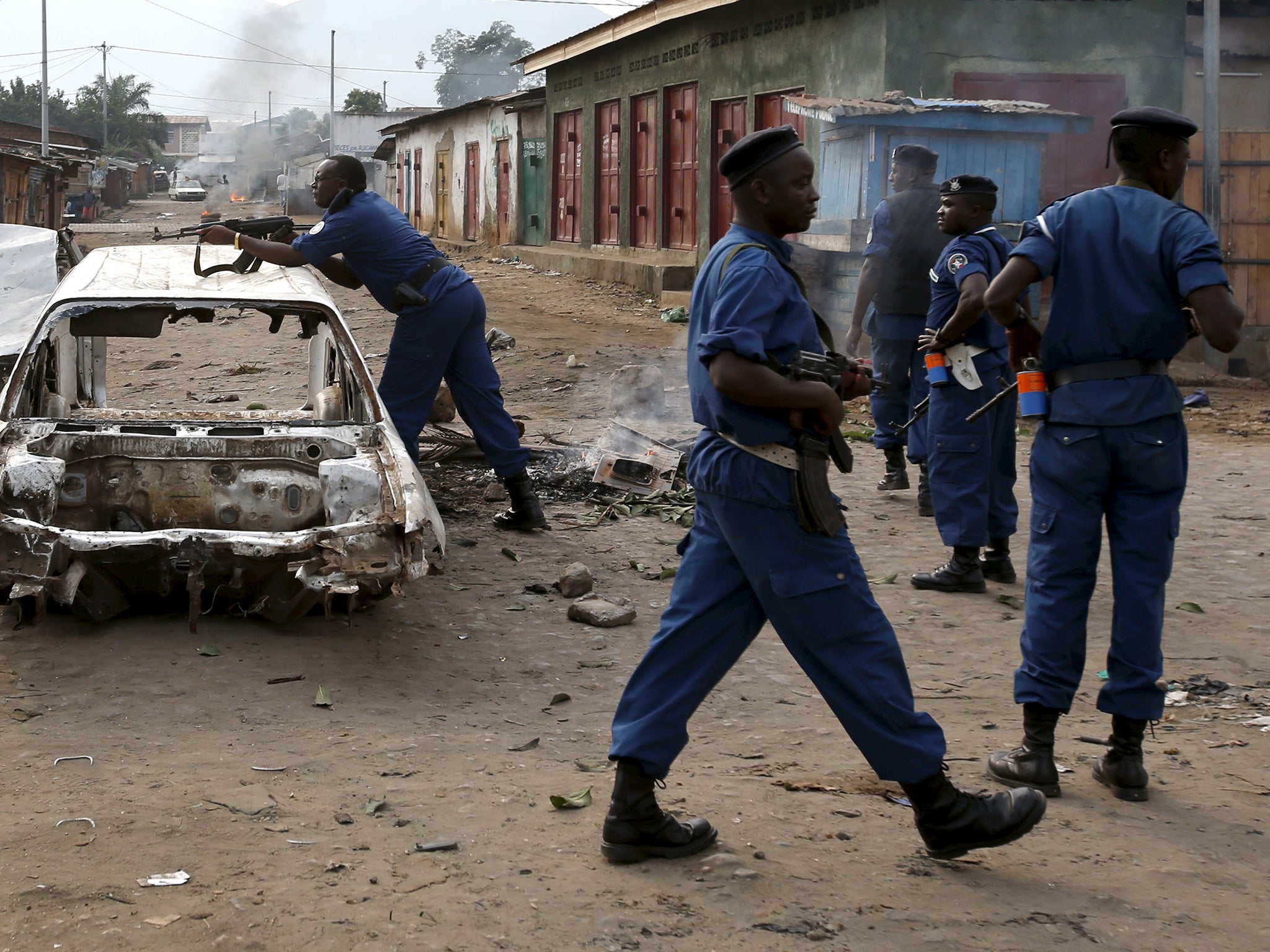Burundi election: President Pierre Nkurunziza's victory has reignited fears of genocide like that endured by Rwanda
Jessica Hatcher talks to opponents in the capital Bujumbura, desperate for UN intervention after the brutal deaths of hundreds

Your support helps us to tell the story
From reproductive rights to climate change to Big Tech, The Independent is on the ground when the story is developing. Whether it's investigating the financials of Elon Musk's pro-Trump PAC or producing our latest documentary, 'The A Word', which shines a light on the American women fighting for reproductive rights, we know how important it is to parse out the facts from the messaging.
At such a critical moment in US history, we need reporters on the ground. Your donation allows us to keep sending journalists to speak to both sides of the story.
The Independent is trusted by Americans across the entire political spectrum. And unlike many other quality news outlets, we choose not to lock Americans out of our reporting and analysis with paywalls. We believe quality journalism should be available to everyone, paid for by those who can afford it.
Your support makes all the difference.Many of the dead never make it to the morgue. Bodies are found bloated in drainage canals and rivers, or bloodied on the streets. The “before” and “after” photographs – a graduation picture and a mutilated corpse – are common.
Janvier, a 22-year-old who refuses to give his surname, wants to go to university. For now, amid fears of another genocide in Burundi, he just hopes to stay alive. “If three or four hundred have been killed in six months, what will happen in five years?” he asks.
Official estimates put the number of dead in the East African country at 240; anecdotally, the estimates are far higher. The crisis began in April when President Pierre Nkurunziza declared that he would seek a third term in office – and escalated when he won a contested vote in July.
This week, as Mr Nkurunziza’s deadline for protesters to hand in their arms passed and amid rhetoric closely associated with the Rwandan genocide, calls were made for UN peacekeepers to enter Burundi. “Nkurunziza has a strategy of eliminating all his opponents one by one,” said Janvier, who claims to have been beaten by police.

Burundi has suffered two ethnic slaughters in the past 50 years. The country’s 12-year civil war, which pitted rebels of the Hutu majority against the Tutsi-led army, claimed 300,000 lives a decade ago. The same ethnic divide fuelled the genocide in neighbouring Rwanda, in which 800,000 mostly Tutsis and moderate Hutus were killed.
In Kamenge, a district of the capital Bujumbura, the body of a young man has lain in the four-berth cooler fridge at the Roi Khaled hospital morgue for four weeks now. Police delivered his bullet-ridden corpse to morgue officials on 18 October. If no one arrives to identify and bury him, it will be another job for the local council.
One 54-year-old man, Eloi Ndimira, was reportedly found beaten, stabbed and shot, his heart removed from his chest, after he intervened when police were beating someone on the street. In Mutakura, to the north of the capital, residents unearthed a decaying, unknown man from beneath a maize crop.
Janvier’s theory – “one by one” – is a sentiment shared by many Burundians who oppose Mr Nkurunziza. “The government, they organised to kill everybody who is against this government, one by one,” said Pierre Bigirindavyi.

Mr Bigirindavyi says his older brother, Zacharia, was forced to lie on his front before being shot in the back of his head by men in police uniform last Saturday. He was one of 10 men killed that night, seven of them in a small, neighbourhood bar. Families of victims have received anonymous threats, warning them not to talk or they will be next.
The government accuses the opposition of the murders to garner international sympathy. “The opposition has been killing innocent people and throwing corpses in the street,” said Willy Nyamitwe, a spokesperson for Mr Nkurunziza, “to attract attention from the international community, who say the government is killing its people.”
“There will be killing, but there will not be what we call genocide,” says a senior Burundian political analyst, speaking on condition of anonymity, who believes the government is responsible for a majority of the attacks.
“The President has no chance – he knows human rights groups are recording all the extrajudicial killings, assassinations, torture. He knows he’ll be arrested in the end by an international tribunal so he wants to achieve as much as he can.”
A UN Security Council resolution on Thursday called for urgent talks and for the groundwork to be laid for peacekeepers to pull the country back from the brink of “possible genocide”. On Friday, Belgium advised its citizens to leave Burundi due to the potential for violence, while the European Union said it was evacuating families and non-essential staff.

Burundi’s government did not specifically respond to the Security Council’s call to look at boosting the UN presence. Instead, it said the resolution was “generally speaking” in line with its view and its desire for dialogue. Charles Nditije, the head of the opposition Uprona group, told Reuters: “We deplore, however, that they [the UN] didn’t decide to deploy peace enforcement forces in the near future.”
A former Belgian Foreign Minister, Louis Michel, warned on Wednesday that the hate speech being used by senior politicians in Burundi is reminiscent of the 1994 genocide in Rwanda.
“Today, the police shoot in the legs... but when the day comes that we tell them to go to ‘work’, do not come crying to us,” the President of the Burundian senate said last week. The “work” is a euphemism used in Rwanda to describe the mass killings of 1994.
One man was found beaten, stabbed and shot – with his heart removed from his chest
In late October, police opened fire on mourners travelling back from a funeral, killing at least one person and injuring a dozen more. The government said the police were fired on first. Since the incident, many in the capital are too afraid to attend the burials of their dead.
It was fun at the start of the unrest, says Janvier, recalling the protest movement that sprang up at the end of April and snowballed into an attempt to dislodge President Nkurunziza, led by dissident factions within the military.
Every morning, Janvier would wake at 7am, hurry to meet the hundreds of other young men and women from his home in the district of Musaga who were protesting, and march under the hot sun all day, singing the national anthem, marching, laughing, and taunting police who prevented them from reaching the city centre.
After the attempted coup in May, when Mr Nkurunziza was briefly forced out of power by General Godefroid Niyombare, everything changed. The government accused the protesters of being terrorists, and instructed police to use all force necessary to put down any protests.
In September, Janvier claims he spent a week in prison being systematically beaten, interrogated by the dreaded “Documentation”, or secret service, which human rights groups say has carried out some of these extrajudicial killings.
“We’re going to kill you,” Janvier said policemen told him, as he lay quivering on the floor of the prison. Since then, like many young men in Musaga, he sleeps in a different house every night in order to avoid being caught.
Join our commenting forum
Join thought-provoking conversations, follow other Independent readers and see their replies
Comments